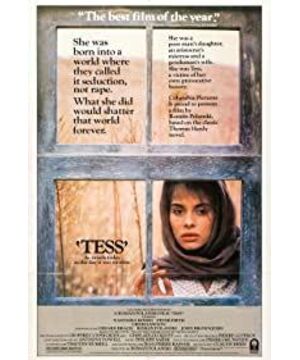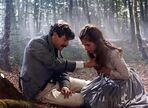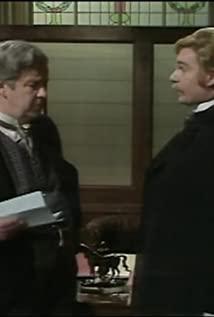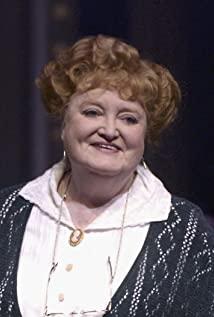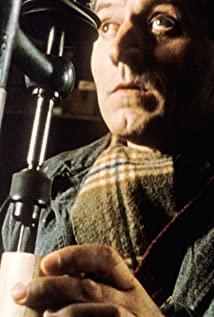"Tess" holds a very high position in the literary critic circle and in the hearts of readers. It has been adapted into film and television works many times, the most famous of which is the film of Polish director Roman Polanski. The film not only received two Oscar nominations for Best Picture and Director in 1981, but also made it only twenty years old at the time. The heroine of Natasha Kinsky became one of the acting school in one fell swoop. With an anti-traditional image of a woman, the book challenged the values of mainstream Victorian society, and it also drew a lot of fierce criticism of the heroine's moral standards. The plot of the novel and the controversy aroused before and after its publication reflect the changes in social moral standards in different eras and the impact on women's destiny as a result.
1. Group Portraits of Women and Female Characters-A Microcosm of the Times
1. Tess-a special "pureness"
If you look at this story from a male perspective, it can be summed up in one sentence: a young woman was violated by one man, abandoned by another, and eventually headed for destruction. However, in Polanski's film, the sexual assault is obscured, and she is more inclined to resist hindsight. After Tess and Angel break, her return home is more painful and decisive.
Hardy described Tess’ appearance from a male perspective, “She is a beautiful and beautiful girl—perhaps, not more delicate than other girls, but her two spiritually peony-like lips and a pair of innocent and pure big eyes , Added an unquestionable charm to her face." The description focuses on her innocence, and her outstanding beauty later became her unquestionable "original sin". Whether in front of Alex or the farmer who stopped her, she never takes pride in beauty, nor does she want to seek money, status, and rights by virtue of her beauty. Therefore, her attitude is neither humble nor overbearing, nor flattering nor pretentious. This bluntness and simplicity inspired her. The desire to conquer the man who crushed her in economic status. But it is contrary to Tess's nature and the root of her tragic fate is that her living environment forces her to live on her own body at all times and treat her body as the object of economic exchange. This contradiction also reached the culmination of the film in the last stage of her life.
The composition of her native family has a great influence on the development of her character. Both the film and the novel convey the tenacity of Tess's character and her naive ignorance of love. The father was drunk and vain, and was overwhelmed by the sudden joy of being a descendant of "Sir John". Although the mother was diligent and capable, she was more like an older child. Although she had seven children, she never taught Tess any relationship between men and women, and how Show off her feminine charm; Tess has six younger siblings, and the eldest brother is only 9 years old, which also pave the way for her to become the irreplaceable mainstay of the family after her father's death. At the beginning of the novel, there are details that clearly reflect the low social status of women at the time: when Tess’s mother went to the tavern to find her father for a long time, Tess hesitated and sent her 9-year-old brother to the tavern, until her younger brother also “fell in” When the tavern cannot extricate herself", Tess, helpless, decided to go out by herself.
In the novel, the only horse in the family died due to her negligence, but as stated in the original book, "No one blames Tess like Tess herself." Her stubbornness and self-evidence can be seen in one or two. The unity of her personality was also fully demonstrated in her refusal to be Alex's mistress later, and her unwillingness to inform him after pregnancy. When she confessed to each other after marrying An Qi, she didn't understand why An Qi, who had always been shown to be indifferent to social customs and etiquette, was unwilling to forgive her for her missteps. (The Christian values at the time were still the mainstream moral standard. It was generally believed that marriage was sacred, women must be loyal to the family and husband, and the chastity of unmarried women was also extremely valued.) An Qi's mentality reflects a large part of the Victorian era. The psychology of the "Double Standards Party": Men can be forgiven for cheating, and women will never stand up if they stumble. The same is true for An Qi. From the bottom of his heart, he can't get rid of the influence of traditional morality on him. He hopes that her wife is a virgin virgin. What he loves is the imaginary Tess-fresh and beautiful, the incarnation of nature, who can speak very philosophical words even though he is not well educated. Every action and judgment of Tess is made through self-awareness and intuition. She is a person who wants to marry in love. When she feels her husband's resistance, although through sadness, she subconsciously wants to leave.
The subtitle of the novel is "A Pure Woman". Both novels and films have redefined "pureness". (Of course, this is also a point that has been criticized by readers in the nineteenth century, which triggered fierce criticism of Tess's moral standards.) Tess relies on instinct and intuition to strongly insist on individual purity, which runs through the text throughout the text. She never thought that she would use her body in exchange for happiness-the establishment of her relationship with Alex at first originated from her ignorance of love, which is more like a process of sexual exploration, and when she realizes that she has a relationship with Alex When there is no love, and when she is on the most oppressed side of an unequal relationship, she chooses to leave decisively. A series of actions such as not having a letter with Alexstone after pregnancy and doing hard farm work are more like her atonement for her spirit and body.
The love with An Qi aroused intense emotions in Tess, and it was also the highlight moment of her natural euphoria. She tried to confess to An Qi again and again-the misunderstanding in the novel when An Qi went to the city to buy wedding goods also intensified her fear. The confession being blocked and the letter not being seen by An Qi were more like a sign to Tess, that they were bound to get married. Tess's sincerity in emotion is unified in her words and actions. Every time I openly frank with An Qi, I bring news that the world has broken apart (the first time I was pregnant and gave birth to a child, and the second time I killed my husband). Her innocence lies in the concept of equality in love relationships. She thought that telling him that giving birth out of wedlock was just like telling him that he had had an older lover. It was just a secret exchange. After pouring out, she would get the happiness and happiness of the marriage, but in An Qi's eyes It is the tearing of the portrait of the goddess of nature and the disillusionment of imagination.
And An Qi's disdain and resistance to Tess as a mistress from the beginning to her acceptance of her murderous act is also closely related to her life context. He is a man who survives in a crack. The Catholic family makes traditional ideas deeply ingrained in his ideas, and the challenge of technological development to the traditional belief system makes him a "rebel" in his family. After going to Brazil to pan for gold and get rich, he finally began to question the moral system that he recognized from the bottom of his heart.
2. Yizi-Calmness and sincerity to love
In the movie, Polanski contrasts women's sincere and open attitude towards love with men. The bourgeoisie represented by Alex's coveting for Tess' beauty, desire for sex, and playing with it are obvious, and the mutual assistance between women and the attitude of women towards love are very precious in this oppressed society.
As Tess's friend who milked the farm together, Yiz was obsessed with Angie just like the other girls.
"That day, I saw you kissing his shadow."
As an ordinary worker on the farm, her love for An Qi is extremely humble, like falling into the dust and blooming from the dust.
Yizi passed by An Qi's house to visit, with respect and sincere words; when An Qi was about to go to Brazil, she stopped Yizi when she drove the carriage, she dropped her package and ran towards the carriage; when An Qi asked if she really loved him At that time, it was a man who hoped to redeem his self-esteem through the love of other women, but Yizi said frankly that his love was not as strong as Tess, and declined to accompany An Qi to Brazil.
3. Lidi-mutual assistance at the bottom
After breaking with Angie, Tess was drifting away in the cold night wind, and in desperation, Tess chose to defect to her friend Lydie. The hug with sympathy and compassion and a bowl of hot potato soup are undoubtedly the best comfort in the dark night. After that, she brought Tess to do physical work. Although it was hard, she realized her physical self-foreclosure.
The director here shows the mutual help among the women at the bottom, and the friendship of failing to share happiness but sharing suffering. They did not feel jealous of Tess's beauty, ridiculed her past experience as a mistress, and never gloated because she was abandoned after marrying An Qi. This further reflects the commonality of the humble status and miserable fate of women in the Victorian era, which made them closely connected.
2. Symbols and Metaphors
1. Carriage and train
The carriage and the train are the counterpoint of the symbol of the era and the symbol of power.
At the beginning of the film, Alex repeatedly invited Tess to get on the carriage. Tess agreed on the second invitation, but because Alex had teased her off her hat in the middle, she never wanted to get on the carriage again. Later, after separating from An Qi, An Qi drove away, and after a short ride in the car, Tess embarked on the long road to find work and return home. In the film, women are mostly carrying boxes and walking, while powerful men often ride in carriages, inviting beautiful but humble girls to go with them.
In front of a malicious male capitalist, getting in a car means that a girl agrees to become her mistress or the first step in starting an improper relationship partner. This was particularly obvious when Tess met the wretched farmer. When Tess sternly refused, the other party made a mockery of Tess's past, completely contrary to the manners and etiquette of a real gentleman. Of course, his exaggerated lust and undisguised ambition also showed Polanski's ridiculous ridicule.
At the end of the film, An Qi takes a train to Sandwood to find his wife. Tess kills Alex who regards him as possession, catches up with the train and goes on a desperate journey with Angie. The two had the same mind on the train, and Tess could finally respect each other and communicate with the man on an equal footing. It seems to be a metaphor of the era of big industry. The development of capitalism and the advent of the era of big industrial machines certainly brought about the unemployment of a large amount of cheap labor, but at the ideological and spiritual level, the feminist movement sprouted. This is also true in history. In the second half of the nineteenth century, the discussion of gender and sexuality gradually became the focus of public debate, such as legal divorce and subsequent concerns about divorce cases, and concerns about women’s voting rights and other rights. The "first feminist movement", discussions on issues such as the double moral standards of men and women, etc., the discussion of sex and the role of women in society has further reshaped the expectations and perceptions of women by progressive people.
Three, image style
Tess is perfectly integrated with her surroundings. The changes in seasons, weather and even temperature are in contrast to her encounters. The seemingly insignificant scenery and environmental descriptions in the novel are closely related to every turn of the story. .
In the movie, the image is like a quiet oil painting, but there is an indescribable horror.
1. Forest
What impressed me was Tess's two experiences in the forest. For the first time, she experienced terrible rape, and it was also a turning point in Tess's life, but Hardy only gave a few vague words, and used "dense darkness and fog" for mosaic treatment. Polanski described the environment very well in the movie-the frosty field, the misty lush forest, Tess pushed Alex from her horse, who was trying to belittle her, and immediately felt that her words and deeds were inappropriate. Immediately lifted up Alex from the horse. It all started from here. Tess’ attitude towards Alex experienced from obedience when kissing and caressing to fierce resistance after clarification, which is also the director’s understanding of the description in the book.
2. Work
Just like Miller's simple and solemn oil paintings, Tess and Lydie have a cordial sense of practicality in their hard work and hard work.
3. Blood
The blood permeating from the ceiling of the room reminded me of "Rosemary's Baby", suggesting that Tess's husband-slaughter plot had a strong atmosphere of horror.
4. De-sexualized love relationship display
At the end of the film, while Tess was dead, An Qi had a love affair during the few days of staying in the abandoned apartment. Although they are a pair of desperate partners, the film's performance is not the torrent of apocalyptic carnival, but the two who have experienced the big storms tenderly and carefully cherish each other, cherish the hard-won time in mutual tenderness.
Fourth, the details
1. Ruan Lingyu
An Qi crossed the river with the three girls in order to have an intimate chance to get along with Tess. It reminded me of Guan Jinpeng's "Ruan Lingyu" in which Ruan Lingyu kissed Cai Chusheng while she was still dead, and kissed all the male directors present.
It can be said: "I kiss everyone just to cover up the true feelings that I revealed when I kissed you."
2. Tess of Philosophy
Tess, who has only received elementary education, can always unexpectedly say some very philosophical words. This is a certain perception that she grew up in nature, and it is the experience of her life experience.
According to the author Hardy, the character of Tess symbolizes that under the influence of modernity, the similar aesthetic strategies of English literature since the nineteenth century have been suddenly drawn to an end, a single, one-or-other moral and aesthetic standard. Replaced by more multi-level and even contradictory perspectives. Hardy is unwilling to provide readers with a coherent, holistic role. Whether it is Tess, Alec or Angel, there is a repetitive aspect in their character, and that is the true normality.
In his view, there is an inevitable instinct in human nature. This instinct tries to explain the meaning of everything in a way that humans can understand. This tendency is precisely in line with the changes in social patterns during this period and the new value system. At the same time, the continuous frustration and wandering of nowhere to rely on Tess’s life are also a major feature of modernism.
Through the destruction of Tess, the urgency of modernism, its depletion of human nature, and the pain that human will and emotions have nowhere to rest in the context of modernism can reveal themselves, and this is exactly Hardy’s novel. The greatness beyond the times. In fact, to this day, we will still see Tess’s tragedy being staged in various forms. The morality and secular prejudice of public opinion still restrict women’s freedom. For this reason, the character image of Tess always exudes vitality through time. , It produces shocks and reverberations in the hearts of women who are pursuing individual happiness.
View more about Tess reviews


